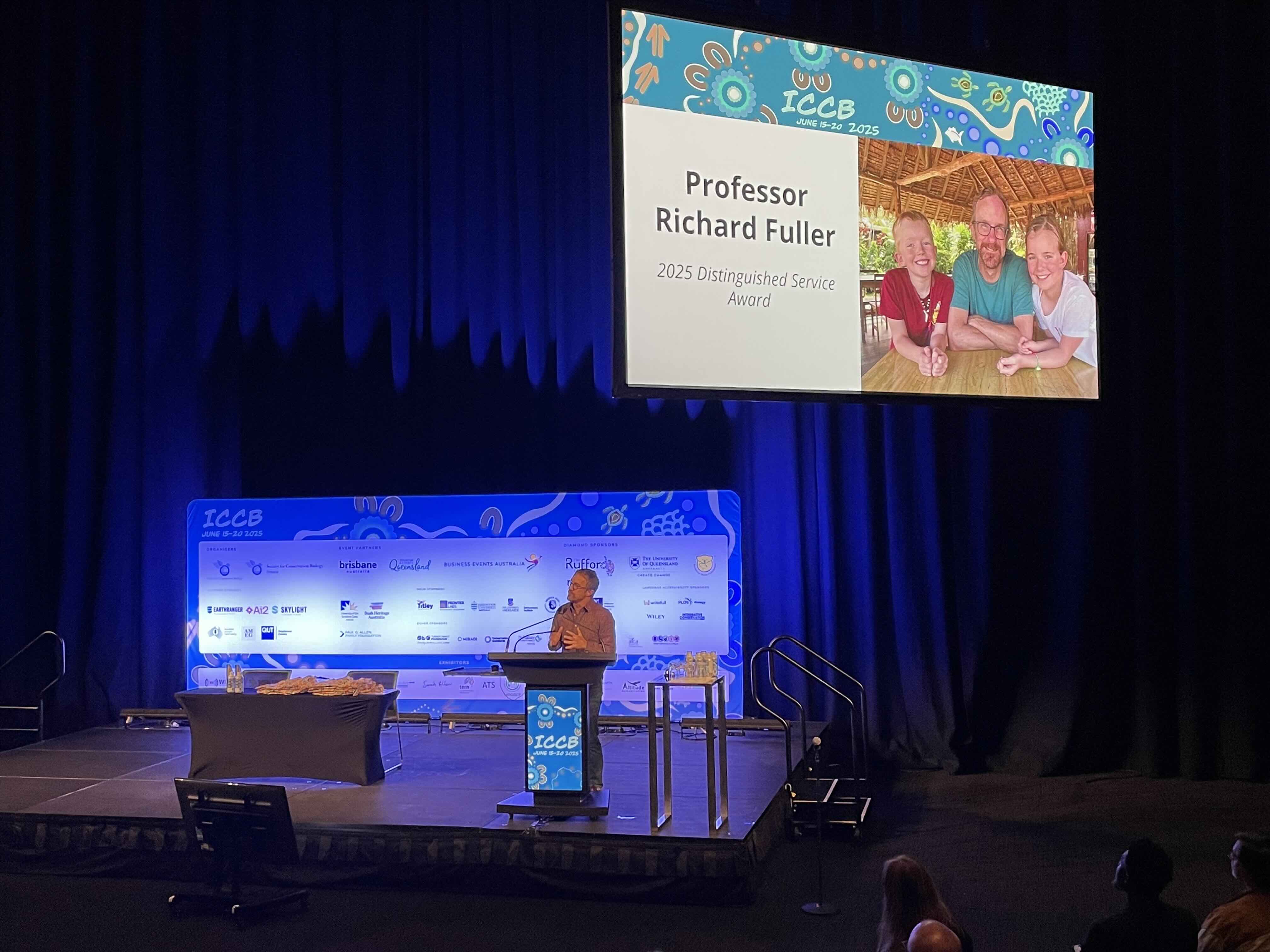Samantha Wong-Topp
CBCS PhD candidate
At the 2025 International Congress for Conservation Biology (ICCB), Professor Richard Fuller received the prestigious Society for Conservation Biology (SCB) Distinguished Service Award. This honour recognises individuals, groups or institutions that have made outstanding contributions to the field of conservation biology. Here, we sat down with Rich to talk about what the award means to him, reflect on his career and hear his thoughts on the future of conservation.
How did you feel when you found out you’d won the Distinguished Service Award?
“Honestly, I was stunned. I’ve always seen awards like this going to the giants of our field – people who blaze trails in ways I could only admire from afar. So to receive the SCB Distinguished Service Award felt surreal. It means a lot, both professionally and personally, especially because it recognises not just scientific impact but communication, mentoring and policy engagement – all the messy, human dimensions of conservation work. That’s what makes this award so meaningful. It’s a tribute to the long arc of collective action, persistence and care that drives change in conservation.”

Image credit: Nga Yee Lai
Looking back, were there any pivotal moments or challenges in your career that shaped the direction of your research?
“There have been many, but one stands out. A year after we first analysed those bird data, I presented the findings at a shorebird conference in Tasmania. Almost every talk at that meeting told a story of decline – population collapses, disappearing birds, a shared sense of grief and helplessness. We all felt that no-one in power was listening. That moment was pivotal. It lit a fire in me. I realised the science alone wasn’t enough. We needed to communicate better, build partnerships and show up in policy spaces.
From that point on, I began thinking differently about what my role as a scientist could be. I still loved data and analysis, but I also started learning how to engage with government, how to tell stories that resonated beyond academia and how to support others to do the same. And, perhaps most importantly, I began to understand that real conservation success is built on relationships – across countries, cultures and disciplines.”
What advice would you offer to early-career scientists who hope to have similar impact?
“First, know that there’s no single recipe for making a difference in conservation. I’m an introvert. I’m not a natural networker or public speaker. I’ve often doubted myself. But I found a niche in science that suited me, and over time I learned how to step outside my comfort zone when it mattered. If you recognise yourself in any of that, please know there is a place in conservation for you too. “Second, be patient. The journey from identifying a conservation problem to seeing real-world solutions can feel interminable. But if you stay connected, stay curious and keep showing up – even when it’s hard – change can and does happen. And finally, remember that science is only part of the puzzle. The most powerful outcomes I’ve been part of have always involved a community – local volunteers, passionate students, brilliant international collaborators, policy advocates, Indigenous leaders. So build those connections and nurture them. Conservation is a team sport!”
To keep up to date on our latest events, check out our Bluesky and LinkedIn.
